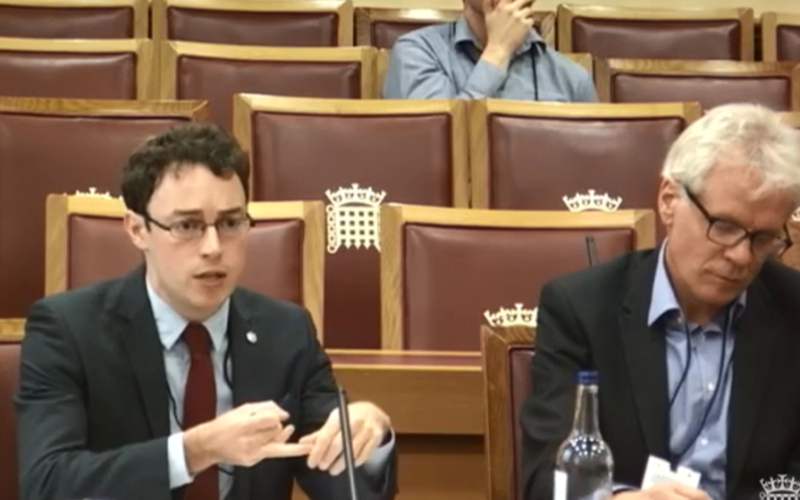Time to embrace the future with a Minister for Lifelong Learning
Appearing before the Lord’s Intergenerational Committee, Policy Connect’s Head of Education and Skills – Simon Kelleher – calls for a joint minister to lead a cultural shift in our approach to education and training
Modernised parental leave - transferable to working grandparents
Improved background and destination data on apprentices
Scrapping of the GCSE resit policy and increased support for young apprentices
People are living and working longer, technology is rapidly changing the structures of work, and the social contract of increasing prosperity from one generation to the next is broken.
The Lord’s Intergenerational Fairness Committee has launched an inquiry in which it will seek to make recommendations to achieve a fairer settlement across the generations. Skills as a means to restore pay progression and productivity in the labour market, is a core component of this inquiry and was the subject for the Committee’s first evidence session.
Appearing alongside the Association of Colleges’ Deputy CE, Julian Gravatt, and Prof Andrew Scott, author of The 100 Year Life, Mr Kelleher drew on the research of the Skills Commission’s Spotlight inquiry. He outlined three key areas for change: the need for leadership in driving a cultural shift in our approach to lifelong learning; how we can tailor existing policies to support this shift; and what new approaches we may need to take to support individuals and employers in a changing world.
Leading the change
Leadership from government through appointing a Minister for Lifelong Learning, shared between the Department for Education and the Department for Work and Pensions, must be the first step taken by a forward looking government. Such a minister would be central in progressing society’s handling of extended working lives future proofing policies and moving the DWP away from being a department that merely focuses on the consequences of unemployment and the economic inactivity. This would require the DWP to work collaboratively and proactively with the DfE to ensure different groups are supported to fill their potential in the labour market.
The championing of the lifelong learning agenda from the top should be accompanied by action at the local level. Elected mayors and LEPs should be given the resources to assess the demography of their areas and subsequently support providers to respond to skills mismatches and thereby ensure that those with plenty of fuel left in the tank, as it were, can find fulfilling work.
Future proofing existing policies
Existing policies must be reviewed against the extent to which they support lifelong learning and intergenerational fairness. The government’s flagship apprenticeship policy was a farsighted intervention in this sense, but more action needs to be taken to ensure its success. Better data collection to ascertain who is benefiting from the levy would be a good start.
It is also necessary that greater efforts are made to ensure that disadvantage for the worst-off is not is not compounded at the start of their adult lives. Revising the GCSE resit policy, which condemns tens of thousands of young people to a damaging experience of education and distracts from acquiring level three qualifications, could be a good move here.
Similarly, ensuring that young apprentices from low income backgrounds receive the subsidised travel and household tax allowances their friends in full time education do would also be welcome. Older people receive subsidised travel and as the promise to offer “significantly discounted bus and train travel for apprentices” was featured in the 2017 Conservative manifesto, it is high time progress was made in this area.
New polices
Lastly, it is clear that bold new policies will be required if we are to adapt to the changing working patterns of the 21st century. Education investment can no longer be frontloaded to the start of ones working life. As such new models of funding need to be developed to support this shift. These could include a skills entitlement or a lifelong learning account for co-investment, and should be policies considered by a new minister.
Alongside reforms to funding, new approaches will be required to accommodate extended working lives and growing care needs across the generations. One such policy called for by the Skills Commission would be to modernise parental leave. As working grandparents increasingly find themselves providing care to partners or grandchildren, parental leave should be made more flexible allowing leave to be transferred across families. This policy would help reduce early retirement and allow parents, especially mothers, to progress in their careers while not losing out on their parental leave.
The Intergenerational fairness and Provision Committee is expected to publish the findings of their inquiry in spring 2019





